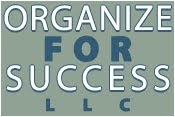 |
| Photo by Pro Church Media on Unsplash |
According to a quick google search, control freak is defined as "a person who feels an obsessive need to exercise control over themselves and others and to take command of any situation." Likewise, the Learning Mind explains "10 Signs You Are Dealing with a Control Freak" as (1) They always correct people when they are wrong, (2) They always criticize and judge other people, (3) They are leaders, not team players, (4) They take full credit for their successes, (5) They will never admit when they're wrong, (6) They know what's best and try to change others to fulfill own agenda, (7) They spend a lot of their time trying to prevent bad things from occurring, (8) They never delegate tasks to others, (9) They always have to have the last word, and (10) They have no time for anyone who makes a mistake. I will happily admit that I do spend a good deal of time trying to prevent bad things from occurring, hence why I own a productivity consultancy, and I dislike wasting time with folks who consistently make the same time-wasting mistakes over and over again; however, there is a big difference between committing each day to making the world a better place and being a control freak.
Lately, in the media, there has appeared to be a movement toward "You do you", including an awesome book entitled You Do You that was published in November 2017 by Sarah Knight. Yet, as a business owner and community leader, I find it's important to be cognizant of others' perceptions of you because they directly lead to how those making assumptions about you will respond to your needs, initiatives or offerings. The tricky part is that no one can get inside another person's head, and human nature is to fill in the blanks of what's not been shared verbally or visually; usually, how we fill in others' blanks is not how those folks would fill in the blanks for themselves, but we can base our fill-in-the-blank answers on only our personal experiences, perspectives and thoughts. Similar to deeming someone to be a control freak would be the label of perfectionist or saying that someone lacks time management skills. They are assumptions, and we've all heard the saying about what assuming makes us.
Since humans can't get inside each others' heads, how do we know that our definition of perfect does or doesn't match someone else's definition of perfect, how can we determine if someone's longer hours working on a project are because they are trying to get it "just right" and aiming for perfection or simply trying to figure out how to get it done at all, how can we decide that someone is late because they have poor time management skills versus simply having had a more pressing priority pop up to deviate a timely arrival and who are any of us to determine another person's delegation skills if we don't know for certain who is actually getting everything done that we are attributing to that person?
Teams are made stronger, more productive and far better at achieving greater results by bringing together diverse individuals with varying experiences, perspectives and thoughts; however, the power behind including diversity within any group is limited by the communication skills of all team members. Are we subconsciously sabotaging our teams? How do we speak up so others don't make inaccurate assumptions about us? Or how do we ask questions to get others' true answers instead of filling in the blanks incorrectly?
When presenting a team-building workshop to a client earlier this month, we focused a good deal on embracing varying perceptions as we cling to the wisdom from Michael Jackson's "Man in the Mirror" song lyrics that we can change only ourselves, not others. In other words, we have to be "starting with the man in the mirror", and I find the Serenity Prayer helpful in knowing how to react to any given scenario... "God, grant me the serenity to accept the things I cannot change, the courage to change the things I can, and the wisdom to know the difference."
Are the assessments we make of others helpful as we attempt to focus on what we can change about ourselves? Moreover, as humans, how can we reign ourselves back and stop making such assumptions of others? How does the human impulse to apply labels impact our success in teams?
